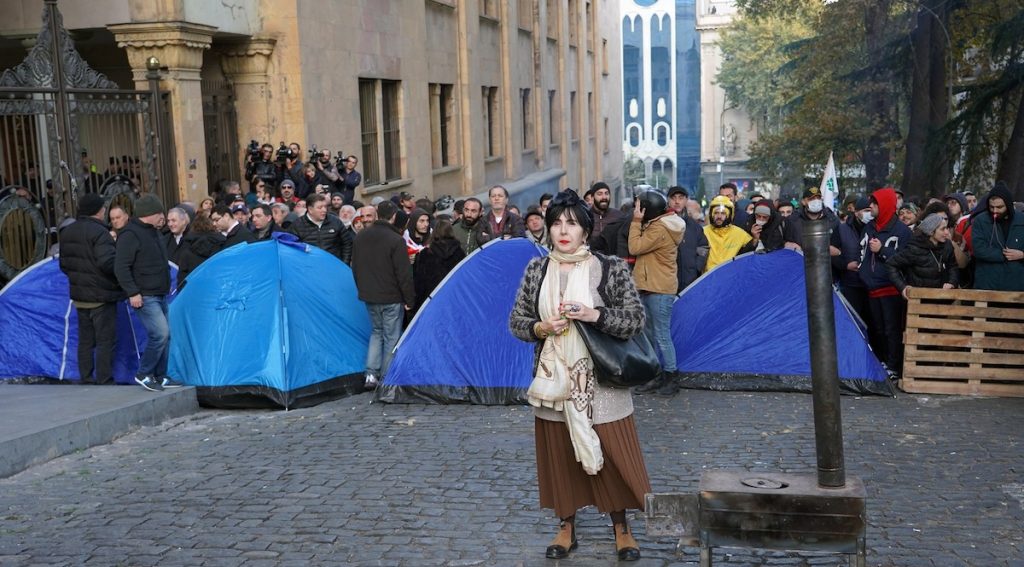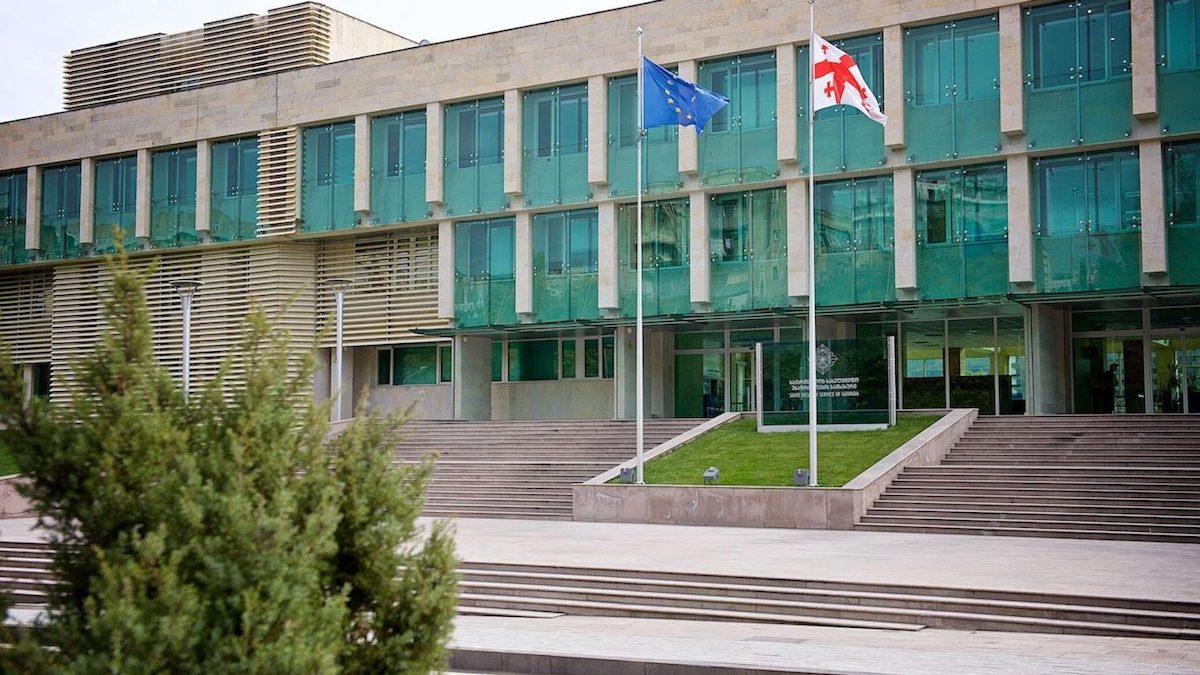It is forbidden to pitch a tent: New rules for protesters in Georgia
Law on assemblies and demonstrations
A year before the parliamentary elections, the ruling Georgian Dream party is coming up with an initiative to toughen the law on assemblies and demonstrations.
According to the new amendments, the forms of protests will be restricted – setting up a tent and possibly setting up a stage for speakers will be declared a violation of the law.
A group of seven Georgian Dream MPs – Henri Ohanashvili, Irakli Beraya, Givi Mikanadze, Rati Ionatamishvili, Irakli Shatakishvili, Tengiz Sharmanashvili, Alexander Tabatadze – came to the Parliament with the initiative of these amendments.
Voting in the parliament is planned to be held in an accelerated order.
The Dream deputies claim that the need for such changes is information disseminated by the Georgian State Security Service on September 18, according to which “destabilization and revolutionary processes” are planned to take place in the country in October-December.
Georgian Dream Chairman Irakli Kobakhidze explained the rush to pass the bill to journalists as follows:
“There is direct information that revolutionary processes, about which we have heard detailed information, are planned from October, including November-December. So the acceleration, of course, has its logical basis. Naturally, the opposition is weak, but in the conditions of this weakness, the risk of provocations, of course, increases. We need to take preventive measures, and this bill serves to do just that.”

What exactly is being changed?
If the changes are approved, demonstrators will be prohibited from setting up “temporary structures.” This could be a tent or a stage where speakers speak at rallies. While up until now setting up a tent was one of the allowed forms of protest, once the amendments are passed, it will be considered a violation of the law. The police have the right to confiscate the tent and dismantle the stage. The violator faces a fine of 500 to 5,000 GEL [about $185-1850] or imprisonment for up to 15 days.
The installation of temporary structures is prohibited if they:
- pose a threat to participants in an assembly, demonstration or other persons;
- hinder the protection of public order and security by the police;
- cause disruption of the normal functioning of an enterprise, institution or organization;
- are not related to the holding of the assembly or demonstration.
Threats and criticism
Representatives of non-governmental organizations are critical of the tightening of the law on assemblies and demonstrations. Experts say that these changes jeopardize freedom of expression.
“Democratic Initiative of Georgia” (GDI) believes that “the toughening of the law does not really serve any public interest, but creates an additional lever to punish the participants of the rally, which will weaken the realization of the right to freedom of assembly.”
The organization stresses that according to international standards, the area protected by the right to freedom of assembly includes the choice of time, place and form of protest assembly, including the installation of a tent/temporary structure.
Opposition representatives have already called the new version of the law on assemblies and demonstrations a dangerous project. According to politicians, Garibashvili’s team is acting in Putin’s style.
“The amendments to the Georgian law on assemblies and demonstrations represent another variation of the Russian law and are aimed at limiting freedom of speech and assembly,” said Tina Bokuchava, chairwoman of the faction of the opposition National Movement party.
Tents on Rustaveli
Setting up tents is a popular form of protest in Georgia. In the history of independent Georgia, tents have been erected in front of the parliament building as a sign of protest more than once.
Setting up tents by protesters generally causes great inconvenience to the authorities. For example, on June 1, 2023, Beka Grigoridias, father of Lazare Grigoridias, who was arrested on charges of “using a Molotov cocktail” during the March protests, was fined 2,000 GEL [about $745] for erecting a tent. He wanted to set up the tent in the square outside parliament.
Parents of children with the rare disease achondroplasia, who demanded expensive medication for their children, were not allowed to set up tents at all.
Tents were also set up by protesters and then forcibly removed by police during the 2019 and 2020 protests.
Zaza Saralidze and Malkhaz Machalikashvili, fathers demanding a fair investigation into the murders of their children, also pitched tents.
Law on assemblies and demonstrations



















